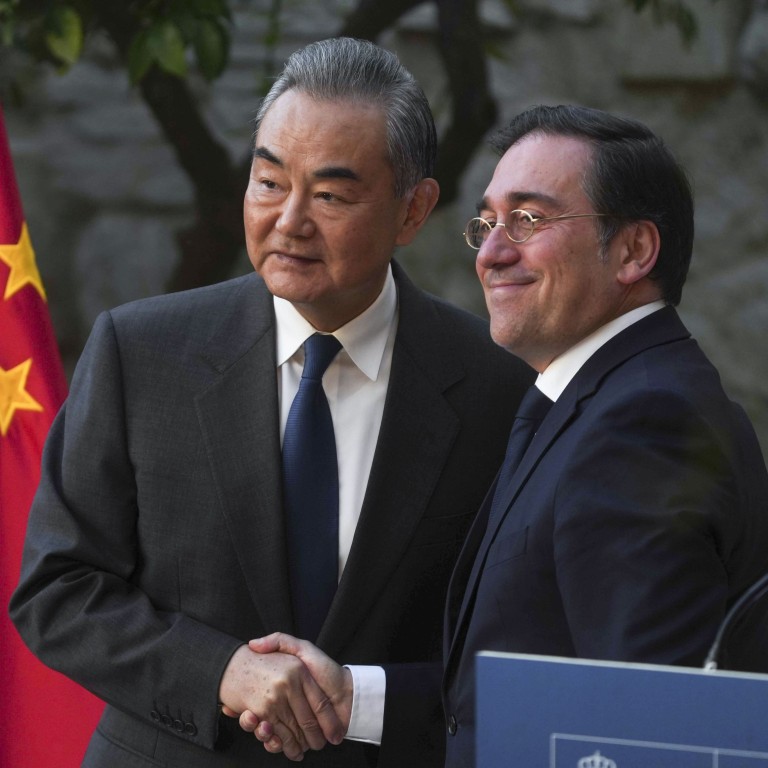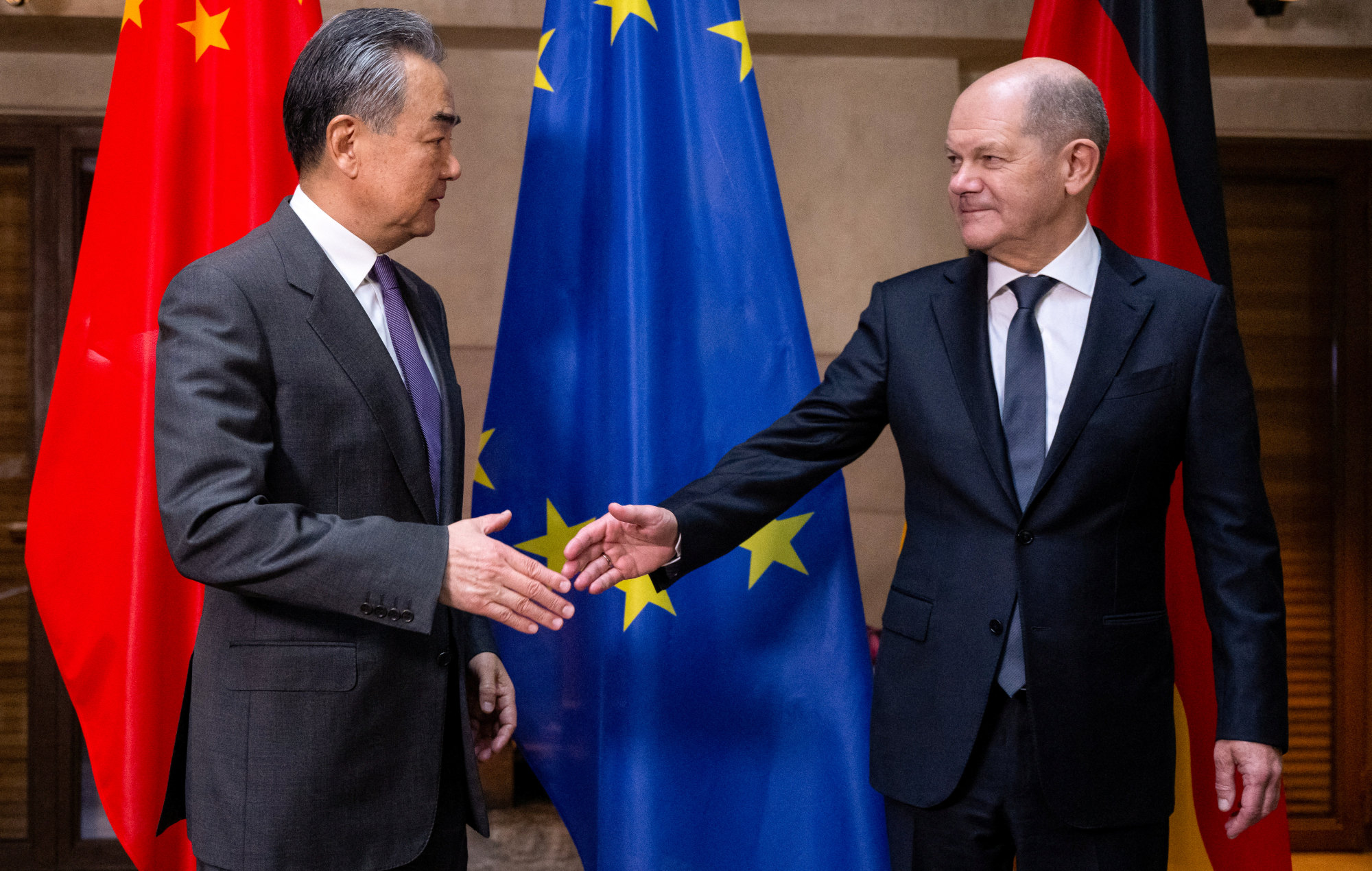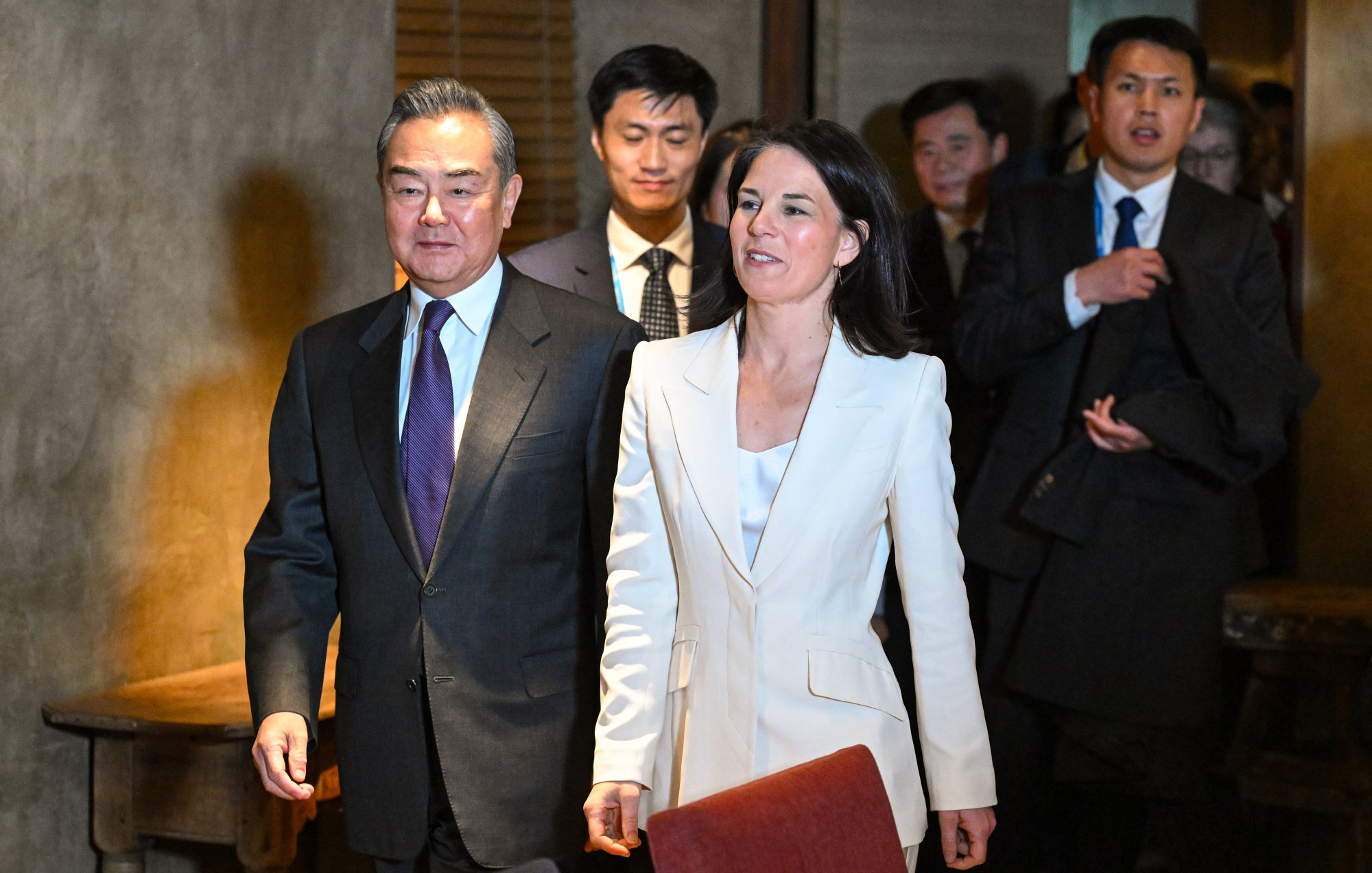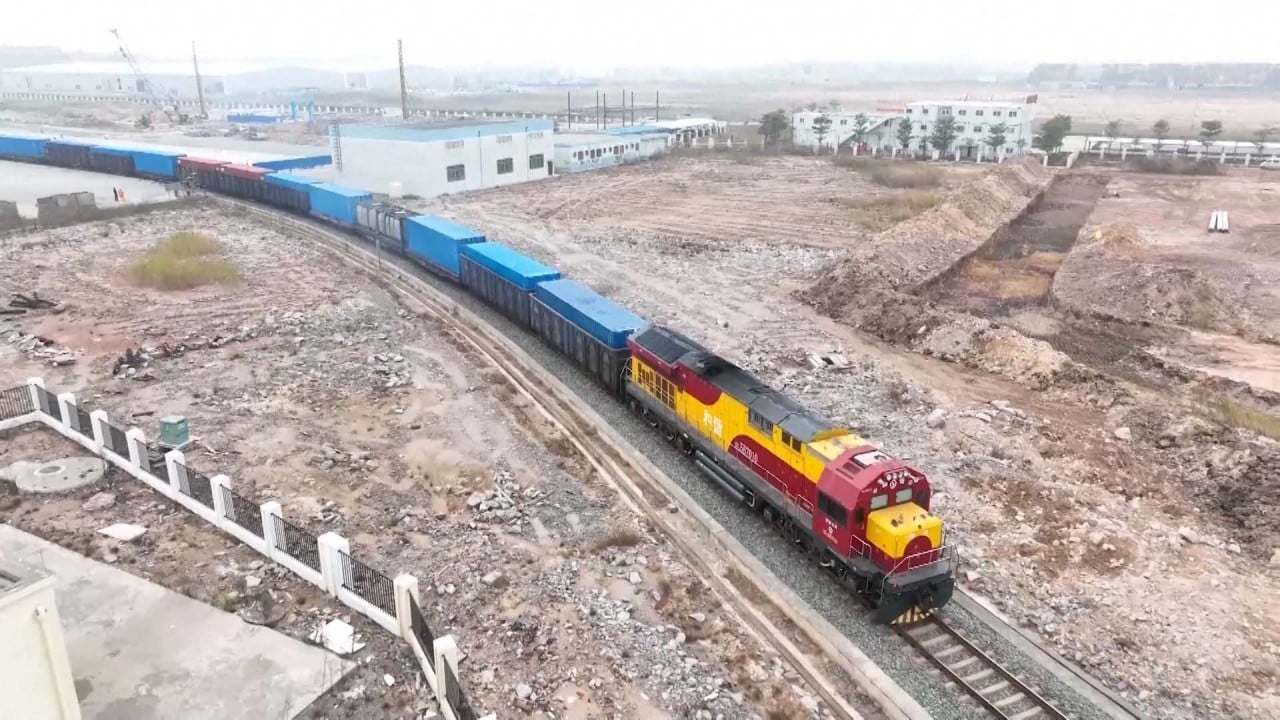
China and Spain agree to provide ‘fair, non-discriminatory’ business environment, Wang Yi says
- Beijing will lift a 24-year-old ban on imports of beef from Spain, which Chinese foreign minister calls ‘good news, especially for Spanish farmers’
- After talks with his Spanish counterpart Jose Manuel Albares in Cordoba, Wang says the two sides agreed to expand cooperation in new areas
During a meeting with Spanish prime minister Pedro Sánchez in Madrid on Monday, the two leaders discussed the opportunities for cooperation in economic and cultural areas to deepen the relationship, and pointed out “the need for them to develop within a framework of balance and reciprocity”, according to a statement released by the Moncloa Palace, the Spanish president’s official residence.
The European Union considers China “a strategic partner”, the statement added, following talks between Sanchez and Wang on EU-China relations.
In contrast, the EU in recent years has more often referred to China as a “systemic rival” or “strategic competitor” amid rising political tensions, while also characterizing Beijing as a trading and economic partner.
Sanchez also conveyed the importance of China’s role in contributing to peace and stability in the Ukraine and Gaza conflicts and such global challenges as the climate emergency, the statement said.
During his joint press conference with Spanish counterpart Jose Manuel Albares Sunday, Wang also said China had agreed to lift a 24-year-old ban on beef imports from Spain, calling it “good news, especially for Spanish farmers”.
Wang Yi raises Taiwan, trade and anti-Chinese ‘harassment’ in Antony Blinken talks
Albares said the impact of the move would be “extraordinarily positive”.
“This is a measure which we have long been asking for and which benefits the entire countryside,” Albares said, according to Agence France-Presse. “It is hard to find a market like the Chinese market.”
Wang, who travelled to the southern Spanish city of Cordoba on Sunday after attending the Munich Security Conference in Germany, said China welcomed “more high-quality products” from Spain.
He also played up a commitment between the two sides to promote openness and cooperation, which he said “is the endogenous driving force for the development of Sino-Spain relations”, according to the Chinese readout.
“China and Spain agreed to expand cooperation in new areas – such as electric vehicles, green energy, the digital economy – and to provide each other’s enterprises with a fair, just and non-discriminatory business environment … to help transform and upgrade our respective economies,” Wang told reporters in Cordoba.
He said they would also step up efforts to improve cultural and people-to-people exchanges, and that Beijing had agreed to send a pair of pandas to Spain after five pandas currently in Madrid are returned to China.
According to the Chinese readout, Wang said Beijing was ready to work with Madrid “to coordinate closely … and propose more effective solutions to promote the political settlement of hotspot issues”, without elaborating.
The AFP report quoted Albares as saying they had “agreed to support the solution of the two states: Palestinian and Israeli” to end the conflict in Gaza.
“I have expressed my serious concern about the critical situation in Rafah, the need to achieve an immediate ceasefire, to continue supporting UNRWA more than ever and the indispensable work it does with refugees,” Albares said, referring to the UN agency for Palestinian refugees.
Wang, who last visited Spain six years ago, was expected to meet Prime Minister Pedro Sanchez on Monday before heading to France.
The continental swing is Beijing’s latest diplomatic charm offensive as it seeks to portray itself as a reliable partner to Europe, where there is a push to reduce economic dependence on China.

“The two sides should remove interference, continue to adhere to openness and free trade, give full play to the role of economic and trade cooperation as a ‘ballast stone’, and provide a predictable policy environment for this,” he said.
“The current international situation is facing a difficult time, and Germany is willing to work with China to play an active role in maintaining peace and stability,” Scholz said, according to the Chinese readout.
Wang also held talks on Saturday with his German counterpart Annalena Baerbock, who called for more cooperation “in areas of common interest”.
“Germany is willing to work with China to … carry out consultations on regional affairs, and strengthen cooperation in addressing climate change and smooth international trade routes,” Baerbock said.

The meeting comes at a time of strained relations between China and Germany – the world’s second and third largest economies, respectively.
The Scholz government in July unveiled its first ever China strategy, which labelled the country as a “systemic rival”, echoing the European Union’s language that China was “an economic competitor and a systemic rival”.
It also urged German companies and investors to de-risk their economic dependence on China, the country’s single largest trading partner.
The new policy also raised concerns over what Foreign Minister Baerbock called “unfair competition” by China, and called for a “level playing field” for German and Chinese businesses.
Beijing has rejected calls in the West to reduce dependency on China, with Premier Li Qiang in June saying it was a “forced proposition”.
Additional reporting by Liu Zhen
But despite concerns over geopolitical tensions and the Chinese economy – and pressure from Chinese rivals in industries once dominated by Germany like carmaking – German investment in China actually increased last year.
German direct investment in China rose by 4.3 per cent to a record €11.9 billion (US$12.8 billion) in 2023, according to a report by the German Economic Institute based on data from the Bundesbank. It concluded there was “no trend” of diversification away from China.
China was also Germany’s most important trading partner in 2023 for the eighth consecutive year, with goods worth €253.1 billion traded between the two countries, according to official German data.


